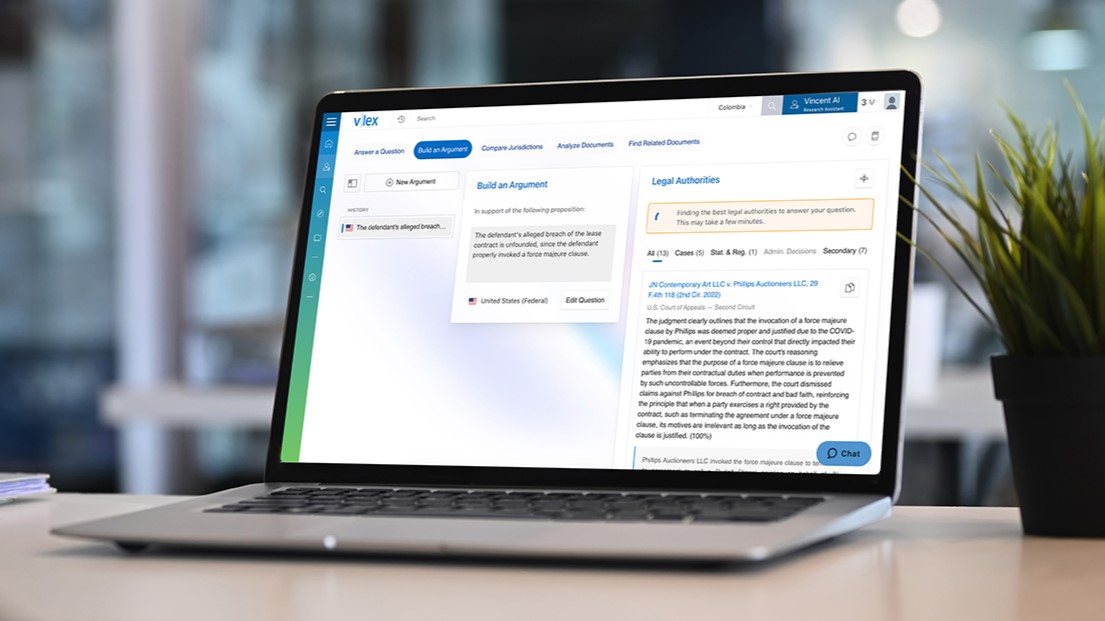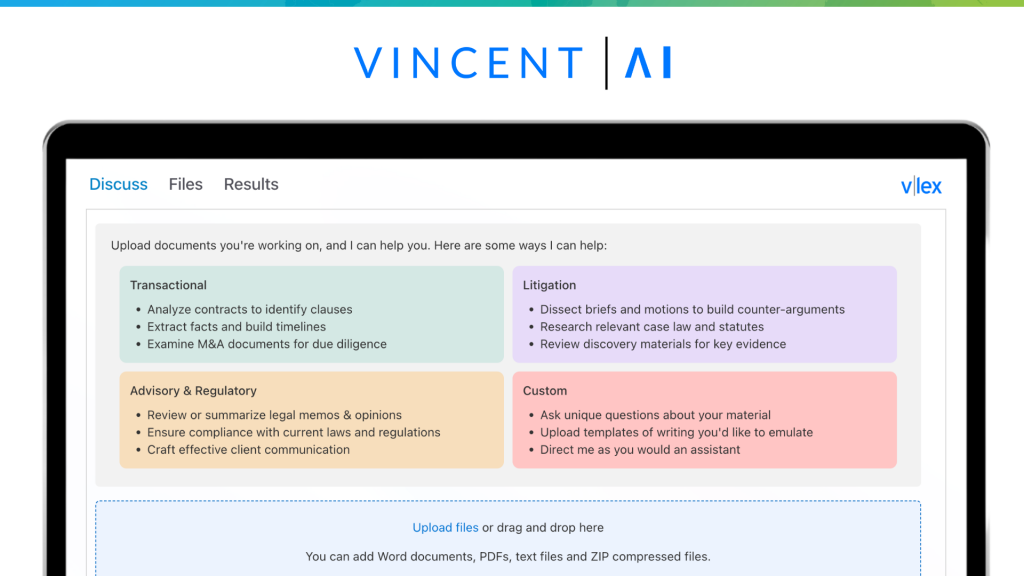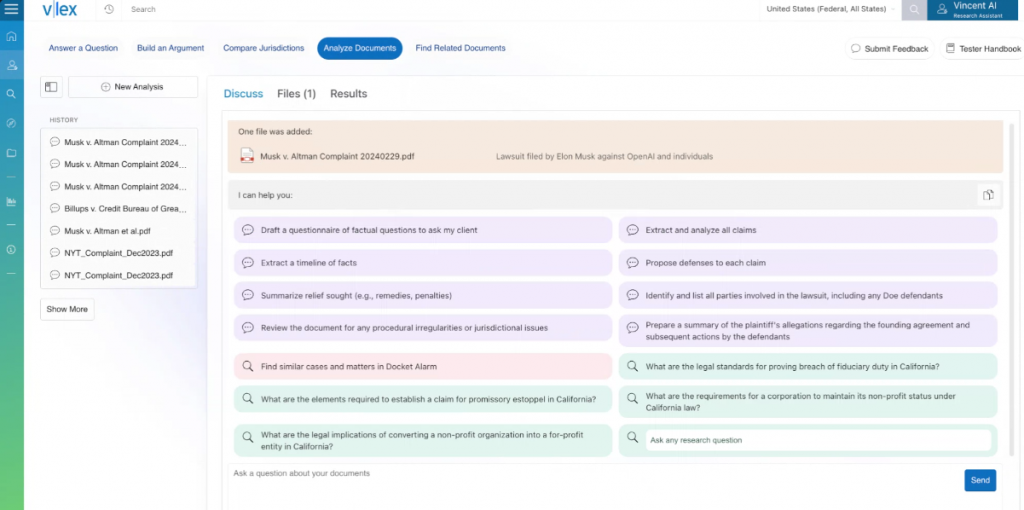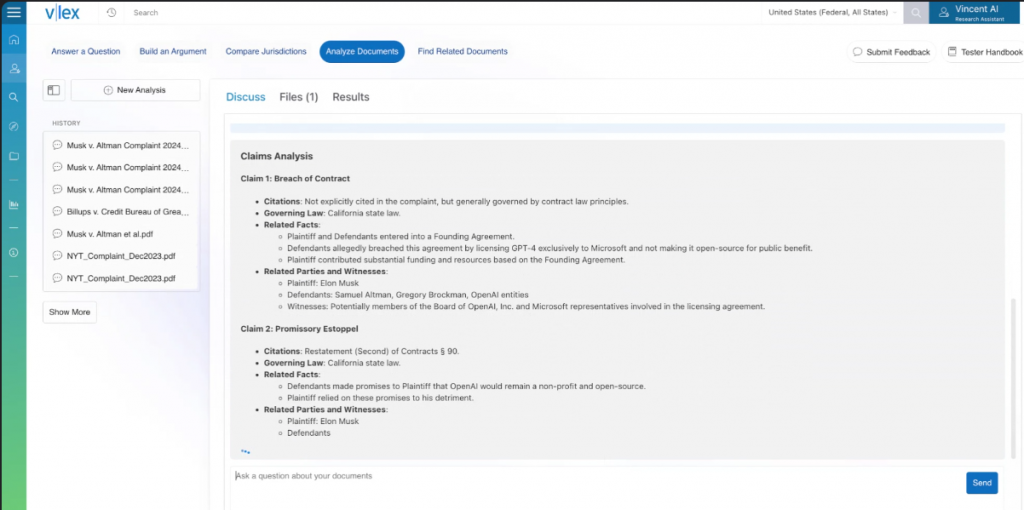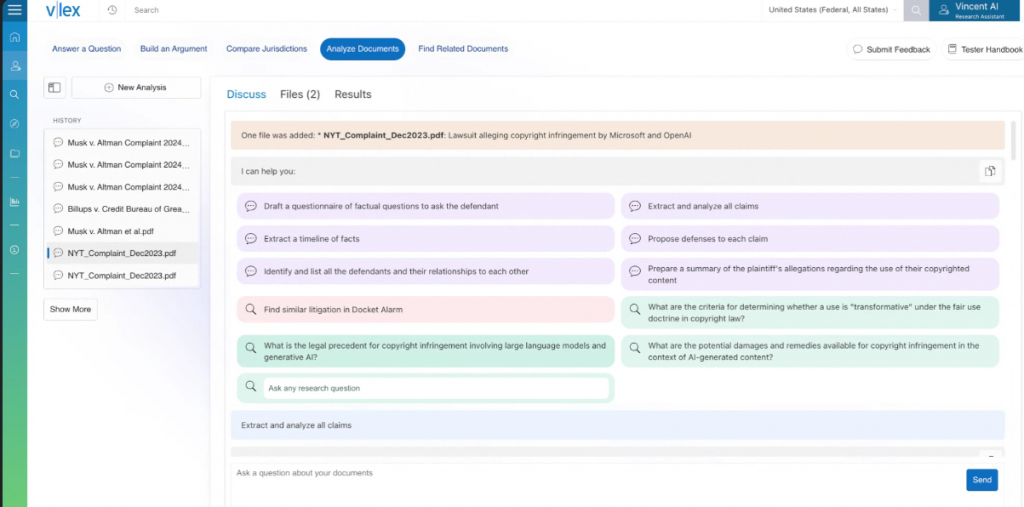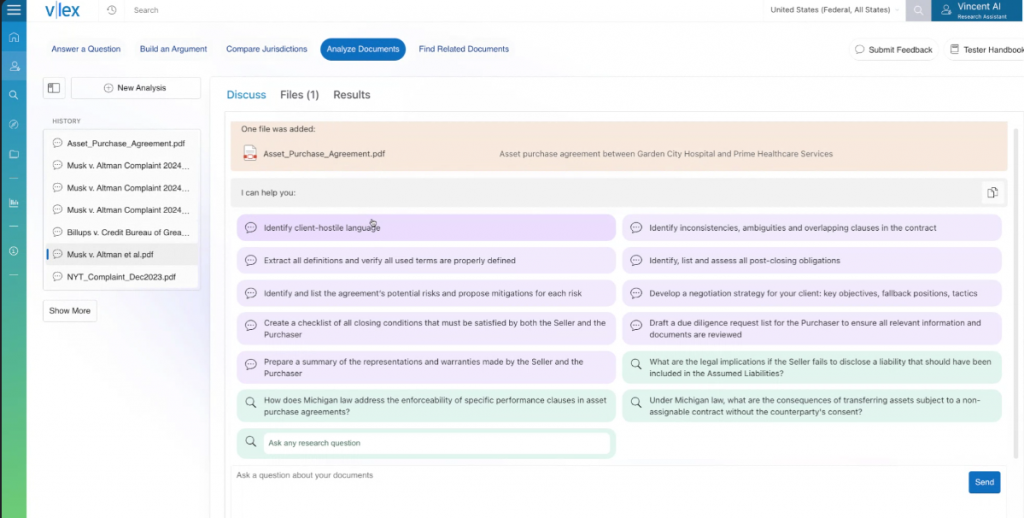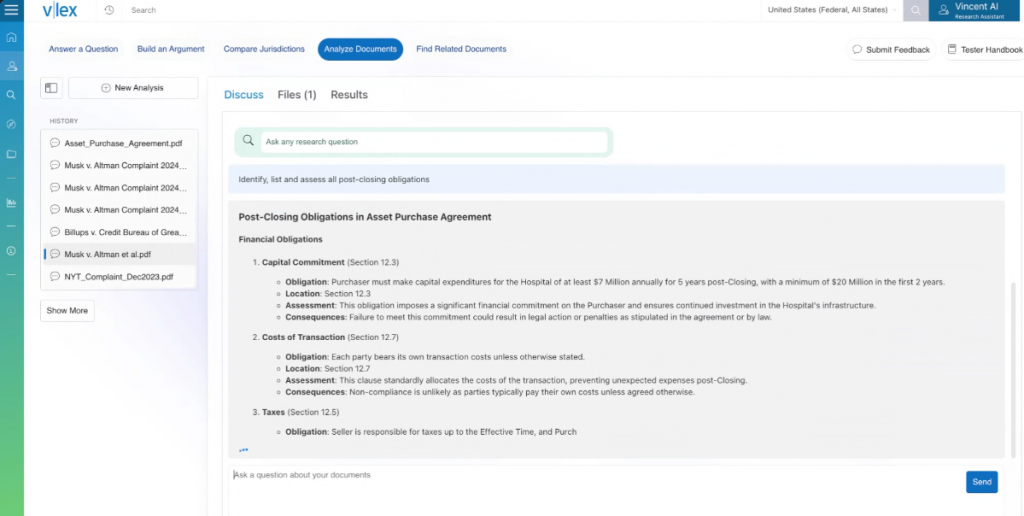The global legal research company vLex today announced the launch of Vincent AI Document Analyze, a new tool in its suite of generative AI features that enables legal professionals to analyze litigation and transactional documents and surface legal and factual information that they can use in preparing a response.
Also today, vLex said it has launched vLex Labs to select Vincent customers, to assist them in creating proprietary AI-powered workflows with the help of a dedicated implementation team.
Leading vLex Labs is Dan Hoadley, who recently joined the company as head of research and development, coming from London law firm Mishcon de Reya, where he had been head of data science and analytics.
All of this builds on the launch by vLex last October of its global, multi-language generative AI research tool, a significantly enhanced version of its Vincent AI, an AI legal research assistant that vLex originally launched in 2018.
That, in turn, built on the merger a year ago of vLex and Fastcase, creating what the companies said was the world’s largest global legal research library, and setting the stage for training the legal industry’s ultimate large language model.
Vincent AI Document Analyze
According to vLex, the new Vincent AI Document Analyze enables legal professionals to interrogate complex legal documents and use Vincent’s legal reasoning and analysis abilities to begin drafting strategic responses. Among the use cases, according to vLex:
- First-cut legal replies. Surface relevant and related information and develop legal arguments.
- Rapid analysis. Summarize documents, extract key facts, and compare law across jurisdictions, completing tasks in minutes that could otherwise take hours.
- Litigation response. Extract and analyze the claims in a complaint, generate defenses, and anticipate counterarguments.
- Contract analysis. Review a contract to identify problematic clauses and risks, and provide guidelines for mitigation.
- Push and pull legal data. Data APIs enable users to connect data sources and create workflows integrated with their own systems.
- Verify sources. The tool’s analysis is hyperlinked directly to primary and secondary law materials in vLex, to users can easily verify all responses.
A Demonstration of Document Analyze
To be clear, Vincent AI already had a document analyzer feature, which was essentially an AI-enhanced version of the brief analyzer it originally introduced in 2018.
But in a demonstration this morning, Ed Walters, chief strategy officer at vLex, showed me that the tool unveiled today is far more powerful and versatile.
In his demonstration, Walters uploaded the complaint from Elon Musk’s lawsuit against Sam Altman and OpenAI. Document Analyze immediately presented a menu of suggested actions for analyzing the brief, as you can see in the image above.
Suggestions highlighted in purple represent standard categories of actions based on the type of document. Suggestions highlighted in green are based on the actual document text and so vary by document uploaded.
Walters asked it to extract and analyze all the claims in the complaint, and within moments, it began to generate an analysis, the beginning of which you see above.
To show how the actions it suggests are tailored to the document, Walters uploaded another complaint, this time for The New York Times’ lawsuit against OpenAI. As you can see above, the green highlighted suggestions are tailored to the document.
In addition to the suggested actions, a user could ask any other question about the document, such as “Who are the law firms that are litigating this case?”
The analyzer can also be used with transactional documents. To demonstrate this, Walters uploaded an asset purchase agreement. As with litigation documents, Document Analyze analyzes the document and offers a menu of suggested actions.
Walters asked it to identify, list and assess all post-closing obligations. You can see part of the response above.
The new document analysis feature can be used with documents from any region, vLex says.
When vLex launched this new version of Vincent AI last October, it was available only for the United Kingdom, the United States, Ireland, and Spain. Since then, it has expanded its availability to the European Union, Singapore, Mexico, Chile, and Colombia, with New Zealand launching in May and other countries to be added going forward.
vLex Labs
The company said its new vLex Labs was created to provide enterprise customers with access to experts on AI from the vLex family of products that includes Fastcase, Docket Alarm, Justis and NextChapter.
Led by Hoadley, these experts will work with law firms to co-develop custom workflows, prepare data, and more, the company said.
“The depth of the insights provided by Vincent AI workflows, alongside the personalized insights made possible with the help of vLex Labs, gives legal professionals a competitive edge with benefits such as operational efficiency, and enhanced client service,” the company said in an announcement.
 Robert Ambrogi Blog
Robert Ambrogi Blog